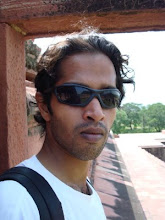The moment Vijender Singh’s 75 kg middleweight boxing semifinal bout against Emilio Correa Bayeaux of Cuba at the Beijing Olympics got over, there were all sorts of talks. Talks of satisfaction, disappointment, nationalistic and regionalistic feelings and also of the way forward. That seemed the most important of all the talks. While it would be interesting to see whether Akhil Kumar, Jitender Kumar and Vijender Singh remained in public memory, the way forward is far more complicated than what meets the eye.
It is a matter of time before the politicians start trying to extract something for them from boxing. In India, politicians who are involved in sports are the most shameless ones. They enjoy their silent presence in the arena and prefer to see the decades go by. It fails a common man’s understanding of things that why would a person go on heading a sporting body if there is no result in that sport for more than two decades! But, there is a simple answer for that too. There is no accountability and thus, administrators can get away with anything.
Two areas that seriously need to be looked into are the unwritten Indian rule of fielding over-age competitors in every age group in every discipline and the rampant use of performance-enhancing substances at the junior levels.
For some reasons best known to them, coaches who train kids in different sporting disciplines all over the country, prefer to wait for their disciples to gain in experience and be mentally prepared for the stage before they are finally pushed onto it. This is contrary to the logic prevailing anywhere else. If an athlete is not tested at the competitive level, if he is not allowed to get accustomed to the competitive atmosphere at a very early age, chances of he maturing for the highest level in due course of time are bleak. Thus, even as 14-15-16 year old athletes, gymnasts and other sportsmen continue to excel at the highest level, 15-year-olds compete in the under-13 category, 17-18-19 year olds in the under-15 category and 21-22-23 year olds in the under-19 category in India. Naturally, their development is more often than not found wanting when exposed to the highest level and from then on it is usually a story of low self-confidence.
In school, I had the eastern zone recruits in football, athletics and gymnastics of Sports Authority of India (SAI) as classmates. Competing first at the zonal, then state and then national level were their priorities, totally different from the other students, whose apparent priority was studies. One of the SAI students enquired about my knowledge on performance enhancing drugs when he came to know that my parents were doctors. I did boast of my awareness (Diego Maradona was one of our childhood gods) but had to plead ignorance when it came to details. Convinced, this classmate of mine then asked me either to ask my dad or simply steal from his stock at home the tablets the name of which he wrote in a piece of paper. I could not help him but curiosity got the better of me to ask him the reason of his desperation. Thus I came to know that the SAI students were allowed a certain number of attempts to reach the next level in the zonal-state-national hierarchy, failing which they went home.
Almost all the SAI students came from rural West Bengal and couldn’t boast of a decent financial background. If the basic expenses of any member of their families were taken care of by someone else (in this case SAI), that was a relief for the entire family. So he couldn’t possibly let go of such a ‘privilege’ so easily. I wish I could help him.
These two apart, another burning cause of concern is a proper rehabilitation program for the athletes. When a 16 year old decides to take up sports, it is a career decision for him. If he fails to make his mark after repeated attempts and decides to call it a day, there should be a well-defined plan for him in the society. And that does not mean a government job alone (every athlete is not even lucky enough to bag that and performances at the national and state level competitions are taken into account for the same). Sportsmen should be encouraged to remain in and thus help the system. A team comprising of coaches, support staff, fitness trainers, all of whom have had prior experiences of being involved in sports actively could only be the outcome of a scientific, proper and well thought out plan, a plan that does not exist in India.
It is common knowledge that the all-important factor is money. With the Indian contingent’s performance at the Beijing Games, that should start pouring in now. But money without accountability will be of no use. And more important than that would be the honest desire to change things, not the desire to get political mileage out of it. If precedents are anything to go by, one cannot be optimistic even after the brilliant performances of our braveheart boxers and the other members of the Indian contingent at the Beijing Olympics.
Subscribe to:
Post Comments (Atom)

No comments:
Post a Comment